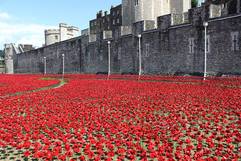 This Mission to England coincided with a whole series of historic events and international crisis. Before boarding the flight for London, I ensured that we sent out an article to challenge the annual celebration of the French Revolution with: What is Bastille Day Celebrating? Protecting Children As I arrived in London, the big news was that over 660 suspected pedophiles had been arrested in Britain as part of a nation-wide crackdown on child pornography. The United Kingdom's National Crime Agency (NCA) announced that doctors, teachers, scout leaders, care workers and police officers were amongst those arrested. To highlight the fact that nothing anybody does online is really secret, the police released images of their mobile monitoring units, which can track all the online pornography viewing throughout the United Kingdom, pinpointing the individuals, computers and addresses where these crimes were being committed. Scotland Yard also exposed the illusion that the Dark Web was untraceable. The Euthanasia Controversy At the same time, there was much discussion over the campaign to legalise euthanasia in Britain. Archbishop Desmond Tutu's comments on how Nelson Mandela had been denied the right to die with dignity by keeping him artificially alive long after he was brain dead, last year, was given much coverage in Britain and used as a justification to legalise euthanasia. Targeting the Elderly, Weak and Vulnerable In South Africa, Taryn Hodgson of the Christian Action Network, went on national TV and made the point that there is a world of difference between allowing a person to die naturally, letting nature take its course, and making someone die, through, for example, a lethal injection. The example was given of how, in Belgium, euthanasia is meant to be only carried out by a doctor, and with the patient's consent. However, more than 100 nurses had admitted to researchers that they had taken part in terminations without either the request, or consent, from the patient, or their relatives! Investigations have shown that nurses regularly go well beyond their legal role, and that one fifth of nurses in Belgium admitted being involved in the "assisted suicide of a patient" even though half of them had not even requested it! Devaluing the Weak and Elderly Dutch professor Theo Boer, a former euthanasia supporter in Holland, told the House of Lords, in London, that he had been "terribly wrong" to support assisted suicide. Professor Boer declared that the very existence of a euthanasia law turns assisted suicide from a last resort into a normal procedure. The Utrecht University academic said that Holland is now heading towards a record 6,000 euthanasia deaths for this year. Euthanasia devalues the weak and the elderly. Compassion and support are needed for those who are ill, or depressed - not euthanasia! When Doctors Become Executioners In the Soviet Union state doctors regularly called in troublesome pastors for a "routine check-up", only to report later that day that they had "died!" Turning a health professional, who should be dedicated to saving lives, into a taker of lives, effectively a state executioner, is a terrible perversion of the healing profession. Where is the Watchman on the Wall? I was invited to speak at a Summer Convention on: Where is the Watchman on the Wall? As 2014 is the 100th anniversary of the outbreak of what we know as the First World War, I spoke on A Tale of Two Conferences: contrasting Edinburgh in 1910 (The first World Missions Conference) and Cape Town 2010. How the Greatest Century of Missions was Derailed into the Worst Century of Persecution? The Causes, Consequences and Catastrophe of the First World War; Jeremiah 6:16-17; What Dangers Should Watchmen be Warning Against?; The Islamisation of Europe; Isaiah 62:6 - Where Are the Watchmen on the Wall?; and Ezekiel 33 & 37 - The Valley of Dry Bones. Remembering the Romanovs On 17 July, I posted on our Reformation 500 Facebook page a picture of the Russian Imperial Royal Family (Tsar Nicholas II, his wife Tsarina Alexandra and their five children: Olga, Tatiana, Maria, Anastasia, and Alexei), who were murdered by the communists in Yekaterinburg on 17 July 1918. Air Malaysia Shoot-down Later that same day the shocking news came through of the shoot-down of Air Malaysia Flight 17 over Donetsk, Ukraine, killing all 298 passengers on board. The Air Malaysia shoot-down was rightly condemned for the outrage it is. Terrorism is terrorism and it should always be condemned and fought against… whether from communists, Muslim Jihadists or IRA bombers. Air Rhodesia's Viscounts However, I could not help but be reminded of the deafening silence that followed the terrorist shoot-down of Air Rhodesia Flight 825, a scheduled passenger flight that was shot down by Zimbabwe Peoples Revolutionary Army (ZIRPA) insurgents on 3 September 1978, during the war against Rhodesia. The aircraft involved a Vickers Viscount named the Hunyani, was flying the last leg of Air Rhodesia's regular scheduled internal flight from Victoria Falls to the capital, Salisbury, via the tourist resort town of Kariba. Bayonetting Survivors Soon after Flight 825 took off, a group of ZIPRA guerrillas scored a direct hit on its starboard wing with a Soviet-made Strela 2 surface-to-air infra-red homing missile, critically damaging the aircraft and forcing an emergency landing. An attempted crash landing in a field just West of Karoi was foiled by an unseen ditch, which caused the aircraft to cartwheel and break up. Of the 52 passengers and 4 crew, 38 died in this crash. The insurgents then approached the wreckage, rounded up the 10 survivors they could find and bayonetted, or shot, them. Eight other passengers survived because they had gone to look for water and help. Communists Claim Credit for Carnage ZIPRA leader Joshua Nkomo publicly claimed responsibility for shooting down the Viscount on BBC television the same evening. Five months later, in February 1979, the communist terrorists shot down another Rhodesian Viscount, Flight 827, another civilian flight, in a similar atrocity. A Deafening Silence At a memorial service held on 8 September 1978 for Flight 825's passengers and crew at Salisbury's Anglican Cathedral, about 2,000 people crowded inside, with another 500 standing on the steps and pavement. Many more were listening to the service on the radio. Dean John de Costa delivered a sermon damning what he described as a "deafening silence" from overseas. "Nobody who holds sacred the dignity of human life can be anything but sickened at the events attending the Viscount," he said. "But are we deafened with the voices of protest from nations who call themselves civilised? We are not! Like men in the story of the Good Samaritan, they pass by on the other side... The ghastliness of this ill-fated flight from Kariba will be burned upon our memories for years to come. For others, far from our borders, it is an intellectual matter, not one which affects them deeply. Here is the tragedy!" International Disgrace It is a matter of international disgrace that the United States government, the British Foreign office, the European Union, the United Nations, the Pope, the Archbishop of Canterbury, and the Organisation of African Unity, all failed to condemn the shooting down and murdering of innocent passengers on these internal civilian flights in Rhodesia. Lest We Forget There is a monument at Voortrekkerhoogte which lists the names of the victims of these terror attacks. It reads: "This memorial is to commemorate the lives of 107 holiday makers and crew murdered in the world's first 9/11 styled attacks to destroy passenger aircraft in flight, when Air Rhodesia Viscounts Hunyani and Umniati were brought down with Sam-7 missiles on leaving Kariba airport on 3 September 1978 and 12 February 1979." Of 18 passengers who survived the Viscount Hunyani crash, 8 escaped while 10 others, mostly women and children, were bayonetted and shot to death. There were no survivors of the Viscount Umniati crash." Mandelamania and International Idolatry
The next day, 18 July, in response to what the United Nations calls International Mandela Day, our Mission sent out e-mailings: The Most Condemned Sin in the Bible - Idolatry and Mandela Day and The Making of a New Religion, which can also be viewed as a PowerPoint through Slideshare. Exploring Historic Sites As the conference concluded on Saturday 19 July, friends in England took me on an exploration of historic sites in Somerset, including the oldest Christian site in England. The great Glastonbury Church was 220 feet long and 45 feet wide. The choir section was 155 feet long and the transept another 160 feet long. St. Josephs Chapel was 110 feet long and 24 feet wide. The Lady Chapel, which is built over the original church established by Joseph of Arimathea in the first century, was 100 feet long and 24 feet wide. All these buildings were interconnected. Glastonbury At one time, Glastonbury was one of the largest monasteries in the British Isles and was the destination for many pilgrimages. Amidst the ruins, close to the high altar is a sign: "Site of King Arthurs tomb. In the year 1191 the bodies of King Arthur and his Queen were found on the South side of the Lady Chapel. On 19 April 1278, their remains were removed in the presence of King Edward I and Queen Eleanor to a black marble tomb on the site." There is so much to report from the historic significance of Glastonbury, that I will leave that for a future article. Wells Cathedral and the Dark Ages We also visited Wells Cathedral, dedicated to St. Andrew the Apostle. This Church of England place of worship in Wells, Somerset, was built from 1175. It is considered the first truly Gothic structure in Europe, having broken from the last constrains to Romanesque. I could not help wonder again, as to just how accurate it is to call the Middle Ages - "The Dark Ages" - when they built such magnificent cathedrals. The clustered piers, pointed arches and magnificent giant stained glass windows, which date back to the 13th century, present an eloquent argument against Voltaire's attempt to denigrate the Christianisation of Europe as "The Dark Ages." Voltaire, who laid the philosophical foundations for the French Revolution, preferred the paganism of ancient Rome to the Christianity of Middle Ages Europe. Unfortunately, many Christians have ignorantly adopted the term, "The Dark Ages", to refer to this tremendous era of cathedral building and magnificent art, when Europe was evangelised and discipled. Worship in Wales Sunday was a full day with three church services and a Fellowship Lunch at a Reformed Baptist Church. This also included a dynamic service in Welsh. This congregation also maintain Sunday school on Sunday afternoons. Today many people think Sunday school was designed as a baby-sitting service for the children of church people, so that parents could enjoy the Sunday morning service without the distraction of their restless children. Sunday School Evangelism Actually, Robert Rakes, founded Sunday schools in the 18th century to provide education and Evangelism for children who were newly urbanised and unchurched. As most of the children were involved in the workplace six days a week, Sunday afternoons presented the only opportunity to teach many of these children how to read and write. Sunday schools provided literacy training using the Bible. Like many other congregations I have come across in the British Isles, this Welsh church integrated many of their members in conducting the Sunday afternoon Sunday schools as an Evangelistic programme to children in the community who came from families who would not normally attend church. Heat Wave in Britain Between services and Sunday school, there was a short opportunity to go for a walk in a nearby park. My time in Britain coincided with what the British people called "a heatwave!"Temperatures were reported to even reach such heights as 32°C in some parts of the country! While it never felt that hot to me, it was treated like a national emergency in Britain. There was no end of announcements and warnings of the dangers of sunburn, dehydration and heatstroke. Police and social workers were mobilised to parks, swimming pools and other public areas to remind people to wear hats, liberally apply sun cream and stay in the shade as much as possible. Parents were approached to ensure that they were keeping their infants in the shade and making sure that their children had adequate sun cream applied, were wearing hats and drinking lots of water. Snow in Africa Now, all this may seem quite amusing to those of us brought up in Africa, however, I also had to remember that the people in Europe would probably find it hilarious how much excitement attends a light snow fall on some of our mountains and a fall of hail during an extremely cold spell in one of our winters in Cape Town. Earlier in July, as hail fell on the ground in Cape Town and snow covered the top of Table Mountain, my wife, Lenora, who was brought up in Austria, just smiled and recalled how they would sometimes have to dig out their vehicle from under the snow. Imperial War Museum After Somerset and Wales, I had the opportunity of exploring historic sites in London. The Imperial War Museum had just opened their doors to an entirely new exhibit, commemorating the 100th anniversary of the First World War. I spent six hours examining their exhibits. St. Pauls Cathedral I also had the privilege of participating in an inspiring classic prayer book Evensong service at St. Pauls Cathedral. St. Pauls Cathedral in London is a Church of England cathedral. It sits at the top of Ludgate Hill, the highest point in the City of London. Its dedication to the Apostle Paul dates back to the original church on the site from the first century. The present church, dating from the late 17th century, was designed in the English Baroque style by Sir Christopher Wren, after the great fire of London in 1666. St. Paul is a busy church with three or four services every day. General Gordon In the cathedral I found the memorial to Major General Charles Gordon, who was once the Commandant General at the Castle in Cape Town. General Gordon is most famous for his campaign to end the slave trade in Sudan. It was his year of archaeological research and Bible study in Palestine that identified the garden tomb and the site of Golgotha. The memorial to Major Gordon, which shows him with his hand on a Bible, declares: "Who at all times and everywhere gave his strength to the weak, his substance to the poor, his sympathy to the suffering, his heart to God. He was born at Woolwich, 28 January 1833 and slain in Khartoum, 26 January 1885. He saved an empire by his war-like genius. He ruled vast provinces with justice, wisdom and power. Lastly, he was obedient to his sovereign's command, and died in the heroic attempt to save men, women and children from imminent and deadly peril. 'Greater love hath no man than this, that a man lay down his life for his friends.' (St. John XV.13)" During this ten day Mission, I attended 27 meetings, distributed 30kg of literature, and gathered invaluable research for the Reformation Society. Pray for Britain May we continue to pray for Britain to be won back to Christ. "Will You not revive us again, that Your people may rejoice in You?" Psalm 85:6 Dr. Peter Hammond Frontline Fellowship P.O. Box 74 Newlands 7725 Cape Town South Africa Tel: 021-689-4480 Email: [email protected]
0 Comments
Leave a Reply. |
More Articles
All
Archives
May 2022
|
"And Jesus came and spoke to them, saying, “All authority has been given to Me in heaven and on earth.
Go therefore and make disciples of all the nations, baptizing them in the name of the Father and of the Son and of the Holy Spirit,
teaching them to observe all things that I have commanded you; and lo, I am with you always, even to the end of the age.” Amen.” Matthew 28: 18-20
Go therefore and make disciples of all the nations, baptizing them in the name of the Father and of the Son and of the Holy Spirit,
teaching them to observe all things that I have commanded you; and lo, I am with you always, even to the end of the age.” Amen.” Matthew 28: 18-20
|
P.O.Box 74 Newlands 7725
Cape Town South Africa |
|
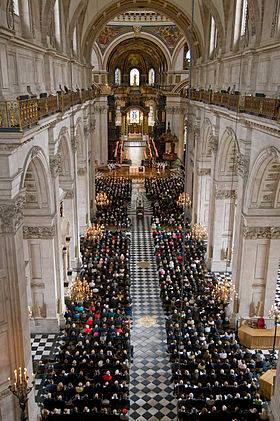
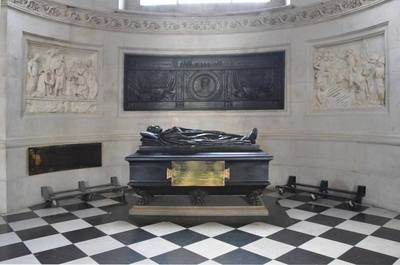
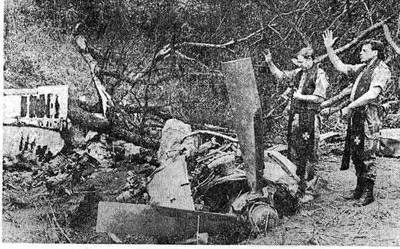
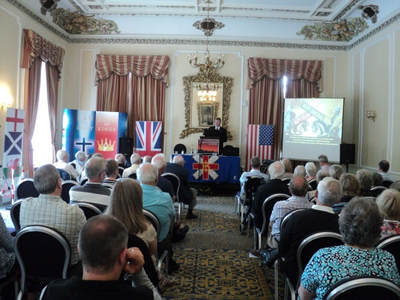
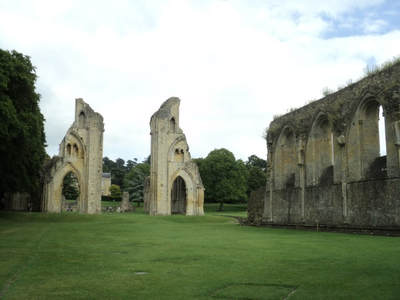
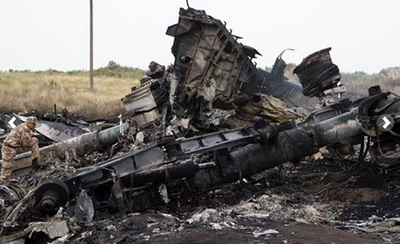
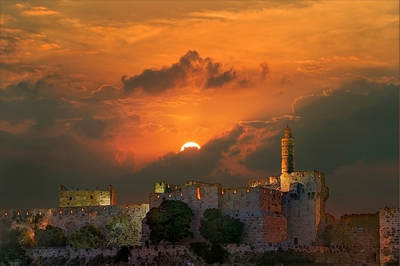
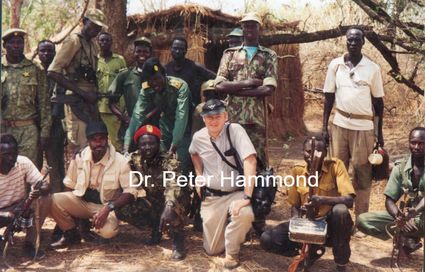
 RSS Feed
RSS Feed
